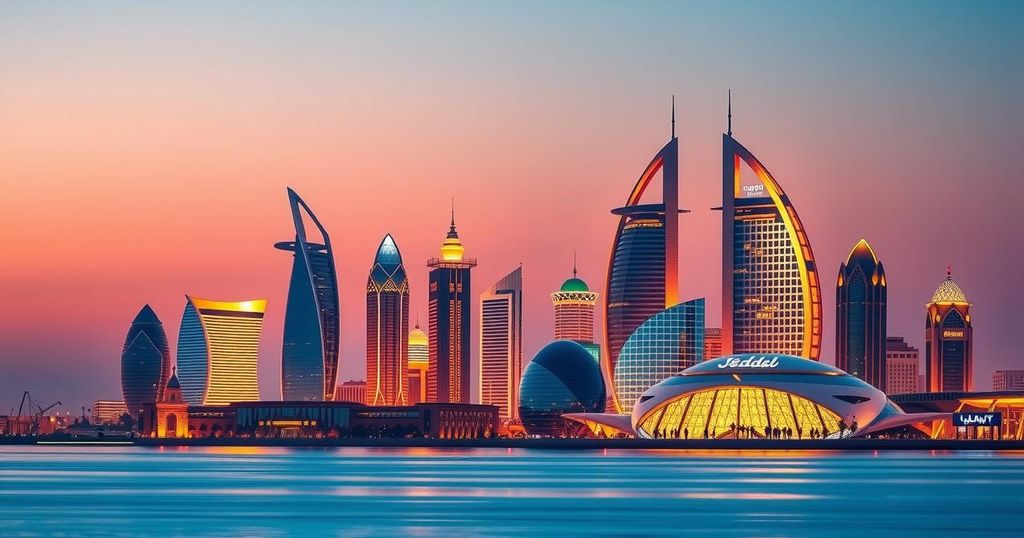Saudi Arabia aims to improve its global reputation by hosting significant diplomatic events, including a summit with U.S. and Ukrainian leaders. Crown Prince Mohammed bin Salman is orchestrating this transformation from a traditionally authoritarian regime to a diplomatic powerhouse, despite ongoing human rights concerns. The kingdom’s involvement in global affairs and economic diversification showcases its ambitions, yet challenges persist regarding its human rights record.
Saudi Arabia seeks to redefine its global standing by hosting a significant summit with prominent leaders, including Secretary of State Marco Rubio and Ukrainian President Volodymyr Zelenskyy. This initiative represents a conscious effort by the kingdom to enhance its reputation as a diplomatic facilitator in international conflicts. In recent years, Saudi Arabia has progressively positioned itself as a pivotal power broker on the world stage.
The transformation of Saudi Arabia’s image coincides with efforts by Crown Prince Mohammed bin Salman (MBS) to shift perceptions from an authoritarian regime known for its human rights violations to a burgeoning diplomatic force. MBS’s strategies include fostering discussions about critical global issues, such as the Ukraine war and regional concerns regarding Gaza, showcasing a country that is evolving and expanding its influence.
Notably, under the direction of MBS, Saudi Arabia has become a more active participant in global affairs, with analysts like Thomas Lippman noting that the nation is now “a more visible and energetic player on the world scene than it once was.” This new landscape is complemented by economic diversification plans through Vision 2030, aimed at reducing the kingdom’s dependency on oil and promoting tourism, business, and entertainment sectors.
Moreover, the relationship between the United States and Saudi Arabia has continued to flourish, with former President Donald Trump announcing a planned return to Saudi Arabia as the destination for the first foreign visit of his second term. As part of the discussions, there are also concerns regarding the intricate ties between the Trump family and the Saudis, culminating in significant investments that raise ethical questions about conflicts of interest.
Saudi Arabia’s burgeoning role as a diplomatic powerhouse extends beyond its partnership with the Trump administration. The kingdom has hosted substantial talks between world powers and Arab leaders, promoting its identity as a facilitator for international negotiations, contrasting itself with cities traditionally known for diplomacy, such as Geneva and Vienna.
Saudi Arabia is also active in global sports and entertainment spheres, attracting major events and embarking on ambitious projects as part of its rebranding. Despite the positive developments in economic and social realms, the kingdom still grapples with severe human rights challenges. Recent reports by the State Department highlighted ongoing abuses, including arbitrary killings and suppression of dissent, underscoring the complex nature of its diplomatic ascent.
The Saudi embassy’s silence on inquiries regarding human rights abuses has not deterred international recognition of the kingdom’s growing influence. Contemporary analysts note that engaging with authoritarian regimes like Saudi Arabia is often preferred over isolation, as the nation is increasingly viewed as a significant player in global politics.
In conclusion, Saudi Arabia is undergoing a significant transformation aimed at reshaping its global image from a pariah state to a diplomatic power. Crown Prince Mohammed bin Salman is at the forefront of this rebranding, pursuing a prominent role in international negotiations while simultaneously addressing domestic reforms. However, the stark contrast between these diplomatic strides and the kingdom’s human rights record remains a point of contention, complicating its ascendance on the world stage.
Original Source: www.nbcnews.com






